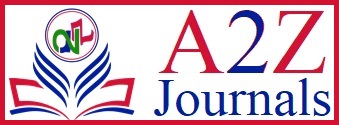Aim & Scope
The primary aim of the journal is to dispense a platform for students, scholars, researchers, professionals, and industrialists to share their findings and research contribution in an open-access manner. JASE focuses on the enhancement of knowledge and sharing it among all worldwide. The published content in the form of papers will extend the knowledge of the current researchers and motivate the beginners in the diversified fields of Applied Engineering, Mathematics, Chemistry, Physics, Engineering Physics, Statistics, Environmental Sciences, Geology, Social Sciences, Biology, Natural and Technological Sciences, Linguistics, Food Science, Agricultural Engineering, Professional Ethics, Behavioural Science, etc. JASE is abided to publish only high-quality research papers of different categories original Research Articles, Review Articles, Survey Articles, Case studies, Technical Notes, and Short Communication. The JASE is determined to accept the research outputs on the current topics having high social implications.
Scope of JASE
JASE is an interdisciplinary refereed journal focusing on all aspects of science, applied physics, applied chemistry, environmental sciences, earth sciences, applied biology, biomedical, education, lingustic, law, natural and behavioural sciences, etc. JASE aims to reach a level of predictive capability that firmly complements the traditional pillars of experimentation and theory. The JASE welcomes the original, unpublished high-quality manuscripts for publication in the following topics (but are not limited to the following):
Applied Sciences
Applied engineering, mathematics, chemistry, physics, engineering physics, statistics, astrophysics, computing, artificial intelligence, social sciences, linguistics, professional ethics, behavioural science, leadership, psychology, political science
Applied Genetics
Breeding, eugenics, forensic genetics, therapeutic gene modulation
Applied Microbiology
Applied microbiology, bioremediation, pharmaceutical microbiology
Agricultural Science
Agricultural economics, agroecology, agronomy, agricultural research, animal science, veterinary science, food science, agricultural engineering, food nutrition, plant science, plant genetics, plant genomes, plant nutrition, plant physiology, plant polyploidy, plant protection, plant proteomics and metabolomics, plant systematics, transgenic crops and their products, etc…
Animal Sciences
Animal behavior, animal cognition, animal conservation, animal ecology, animal genetics, animal physiology and nutrition, animal products and processing, animal reproduction, breeding and genetics, tropical animal health and production, etc…
Bioscience and Biotechnology
Aerobiology, anthropology, biochemical genetics, biochemistry, bioinformatics, biological engineering, biological evolution, biomathematics, biophysics, biostatistics, cytobiology, developmental biology, ecology, entomology, enzyme engineering, immunology, molecular biology, nano-bio-analysis, neurobiology, physiology, protein engineering, radiation biology, virology, zoology, etc…
Criminal Investigation
Legal issues, criminal justice, forensics, criminology, criminal investigators, international criminal investigations, murder investigation, offender profiling, corruption investigations
Chemistry & Materials Science
Materials science, chemical and molecular sciences, nanotechnology and applied nanosciences, surface sciences and technology
Environmental & Earth Sciences
Environmental sciences, green sustainable science and technology, earth sciences and geography, ecology science and engineering, geology, biology, natural and technological sciences, organisms, taxonomy
Physical Sciences
Energy science and technology, optics and lasers, acoustics and vibrations, applied physics, quantum science and technology, applied thermal engineering, fluid science and technology
Education
Pedagogy, Pedagogy of School Subjects, Pedagogy of Teaching, CT and Pedagogy, Understanding Learning, Blended Learning, learning as a Developing Individual,
Learning from a Constructivist Perspective, Learning and Teaching, Science of learning, Development and Learning, Understanding the Learner
Adaptive Physical Education, Understanding Childhood in Socio-Cultural Perspectives, Adolescence: Issues and Concerns, Stages of Child Development, Implications for Teachers, Language Background of students, Nature of Classroom Discourse
Informational Reading and Writing, ICT for Assessment and Management, Classroom Communication System, Understanding Teaching, Teaching as a Profession, Teaching models, Comparative education
Curriculum Determinants and Considerations, Curriculum Development at School Level, Curriculum Implementation and Renewal, Knowledge and Curriculum, Understanding Disciplines and Subjects, Drama and Arts in education
Primary School Engagement, Forms of Knowledge and its Organization in Schools, Assessment and Evaluation, Context of Assessment, Procedure of Assessment, Data Analysis, Feedback, and Reporting, Issues and Directions Regarding Examination Reforms
Gender Issues, Gender, School and Society, Innovative practices and new trends in education, Instructional System Design, Educational Technology, Contemporary India and Education, etc.























